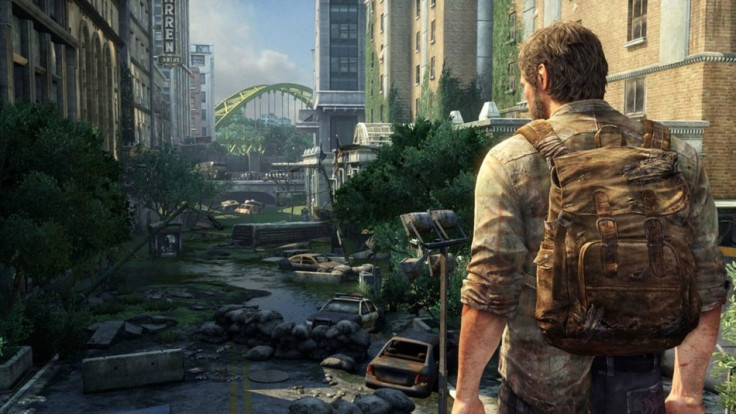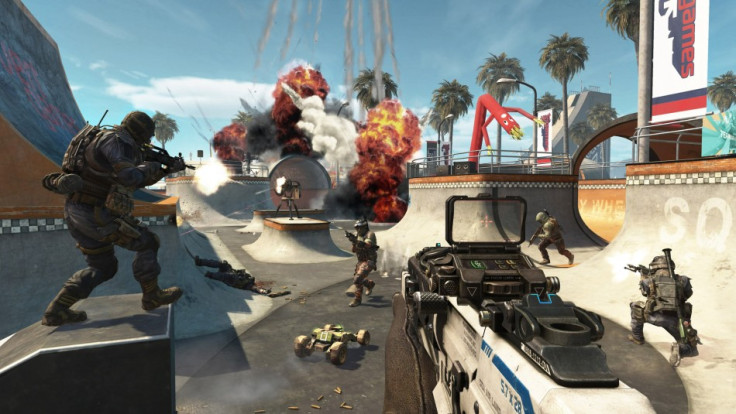Why Games Matter Blog - What I've Learned After a Year in Games Journalism

After a Year in Game Journalism, Here's What I've Learned - Three lessons learned from writing about videogames
I've maintained this blog, sporadically, for the best part of a year now. For the same amount of time, I've been in daily contact with game developers, press representatives and of course, my beloved readers. It's only two days until I leave International Business Times UK and head into the uncertain world of full-time freelancing.
But before I do, I want to share three things I've picked up over the last 12 months, what a year of reporting on videogames has taught me. Maybe it'll teach you something as well, or maybe these are things you only learn on the job. I certainly didn't know any of this before I started. Mistakes were made. I'm wiser now. Here's what I figured.
1. No matter what you write, someone, somewhere, will hate it.
I have this theory that for every conceivable scenario you can imagine there is at least one person in the world who will get off on it. Somewhere out there is a man who gets breathless whenever he thinks of Terry from Fawlty Towers. A woman, somewhere, has to sit on her hands whenever she sees Colin Montgomery sink a birdie. For every possible thing you can dream up, someone is turned on by it.
In game writing, the principal is reversed - no matter what you write, someone, somewhere, will be outraged.
And what's uncanny is the ability these people have to discover your work. I'm not altogether surprised that some of my articles have drawn internet ire, but the volume is staggering. I once dared to suggest on the New Statesman that The Last of Us questioned the role of men in games and was caught, instantly, in a downpour of digital abuse. The wording didn't bother me - one of the comments read "this is how retarded feminist are" - but the quantity was enormous. I was sort of impressed.

It seems like there's an entire nation of commenters out there, all angry and all equipped with the most sophisticated digital trackers on the market. I imagine it's like the Pentagon situation room. As soon as something is published on the internet, a man in a tie and a headset turns to a general and says: "Sir, Natasha Devon has written on The Independent that lad's mags might be a bad thing, please advise." "Go to DEFCON 1," he replies "and send 10 thousand narked-off readers to tear the article to pieces."
Thankfully these deer stalkers are a small minority. I've learned to just ignore them.
2. Previews are useless
I don't see the point in writing previews anymore. In childhood, the idea of playing the next GTA six months before my friends was the reason I wanted to write about videogames. Now I'm not interested. I'm not comfortable making a quality assessment of something I've not played in full.
Previews only offer you a glimpse of something. Sitting to write them, I've often felt like a liar, like I'm trying to review a city that I've only seen through the window of a plane: "Big rivers, lots of cars, airport staff fast at refuelling." For publications and game companies, previews are a win-win trade. The developer gets some publicity, the magazine gets a sales boost. But although that makes business sense, nothing else about these big product launches seems to.
To promote Assassin's Creed IV, Ubisoft built a replica pirate ship and drove it to Comic Con. At the launch of Black Ops II, I remember bumping into Professor Green and being served free beer along with about 1,000 other visitors. How much does this cost? I understand companies have separate fund streams, and that events like this are budgeted for, but the list of bankrupt developers is only getting longer. Ubisoft has said it won't invest outside of big franchises, because it can't afford to.

So my problem with previews is two-fold. The news value is minimal and the cost is enormous. It feels like we're burning the candle at both ends, cheapening the idea of game journalism while, in a roundabout way, running the industry into the gutter. I'm not interested anymore in testing games that aren't finished.
3. Despite everything, videogames are getting better
I've played so many good games in the past year, I don't know where to start: Tomb Raider, Assassin's Creed III, Spec Ops, The Walking Dead, XCOM, FTL, Devil May Cry, The Last of Us, Hotline Miami, BioShock Infinite, Dishonored, Sleeping Dogs, The Unfinished Swan, Thomas Was Alone, Papers Please, Max Payne 3. There are a lot of others. There is so much good work being done right now. Despite all my complaints, not just in this blog but countless others, there couldn't be a better time to be a game critic.
Videogames are evolving in countless exciting directions, surging through the Renaissance period that cinema went through in the 1930s. Games are engaging with new ideas and new audiences, broaching controversial subject matters and handling them with care. They're becoming an open platform and I'm confident there are more creative voices now than ever. There's creativity in every direction, from AAA, to independent and mobile. Videogames, done right are a very special thing to be a part of. I'm grateful that for the past year I've been able, in some small way, to contribute.
But that's me done. I had to decide this morning what song I was going to sign off to. I think I've chosen right. Bon voyage.
© Copyright IBTimes 2025. All rights reserved.





















